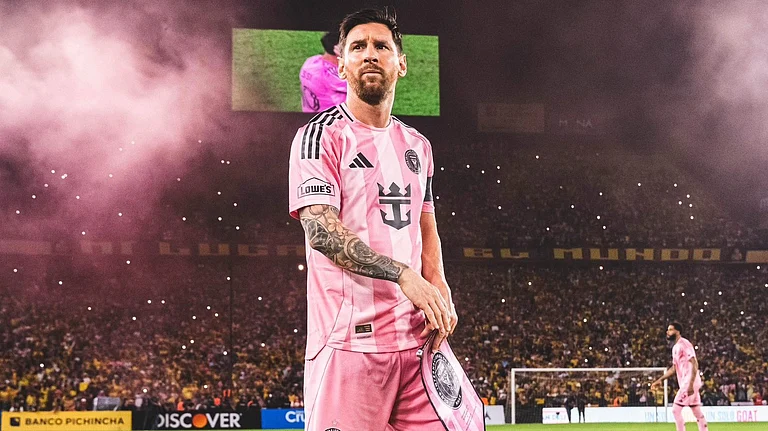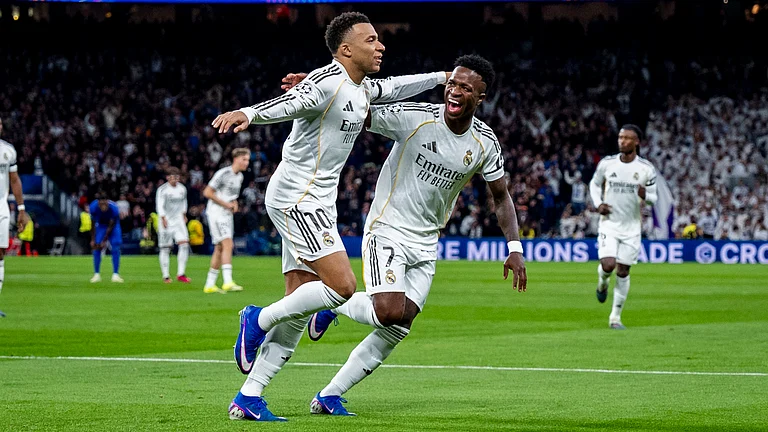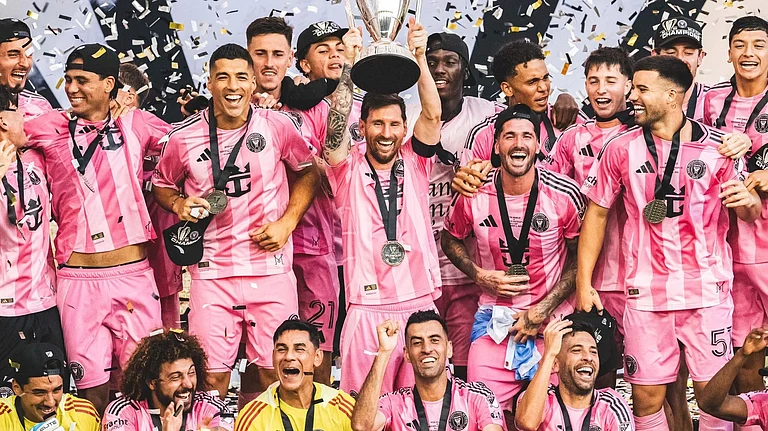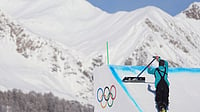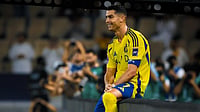Paris Saint-Germain produced one of the most dominant seasons in the history of the French league despite clinching a record-extending 12th league title in an anticlimactic fashion. (More Football News)
Second-place Monaco's 3-2 loss at Lyon on Sunday gave PSG an unassailable 12-point lead with just three rounds left. PSG had wasted the chance to celebrate with its supporters at home by drawing 3-3 with struggling Le Havre on Saturday.
For the first time in years, PSG this season looked like a genuine team on the field instead of relying on flashes of brilliance from its superstars.
But splashing the cash again played a big role in PSG's success. The Parisian club's budget this season is as large as the budgets of Marseille, Lyon and Monaco combined.
Here's how PSG did it:
Luis Campos
The dominant season bears the fingerprints of PSG strategic adviser Luis Campos, the mastermind who previously helped Monaco and Lille build winning squads as their sporting director. PSG lost the league title to Monaco in 2017 and Lille in 2021. Campos was sitting next to PSG president Nasser Al-Khelaifi to watch Saturday's game at Parc des Princes.
“I am very pleased with our professional and personal relationship. I would like to be at the club for many years with Luis Campos,” PSG coach Luis Enrique said through a translator. “We talk about the present and the future on a daily basis.”
Instead of signing superstars, PSG focused on adding more depth to the squad. In the past, PSG had more stars but a weak bench, which became a problem when some key players got injured.
Younger And Versatile
In its transfer strategy, PSG ruthlessly rebuilt its squad by replacing declining stars with younger players. There was an emphasis on signing French players to remove any time needed to adapt to a new country. The club also targeted players who can operate in several positions, making it easier for the coach to rotate the team.
At the back, PSG upgraded on Juan Bernat in the left back position by signing Lucas Hernandez and replaced veteran Sergio Ramos by signing center backs Milan Skriniar (a player in his prime) and Lucas Beraldo (a promising prospect).
In midfield, PSG offloaded the disappointing Leandro Paredes and the underperforming Marco Verratti and Georginio Wijnaldum to sign Manuel Ugarte and Lee Kang-in, and the more experienced Marco Asensio.
In attack, PSG opted to replace soccer greats Neymar and Messi with different types of players. The club hired French wingers Bradley Barcola and Ousmane Dembele, who provided more natural width whereas Neymar and Messi often drifted infield to combine in tight spaces. PSG also sent out on loan Hugo Ekitike to Eintracht Frankfurt while signing more physical center forwards in Goncalo Ramos and Randal Kolo Muani.
Improved Defence
PSG pipped Lens to the post by just a point last season but cruised to the title this season, thanks in large part to PSG's improving defense. Luis Enrique has turned PSG into a team harder to beat, conceding 0.93 goals per game compared to 1.05 last season.
The new champion has lost only once in 31 games in the league this year — compared to seven defeats last season. Having young, hungry forwards press high up the pitch helped protect the backline.
Supporting Cast
PSG has scored slightly more goals per game than last season despite the departures of Neymar and Messi.
Replacing Messi and Neymar was always going to be a difficult task, especially since they each had goals and assists in double digits, combining for 29 goals and 27 assists in the league last season.
On paper, this put more pressure on star striker Kylian Mbappe to score goals. But a different approach helped PSG spread the goals and assists around with Ramos, Kolo Muani, Dembele, Barcola and Asensio combining for 27 goals and 22 assists.
The midfielders also stepped up with Vitinha, Zaire-Emery and Lee combining for 11 goals and 10 assists.
No Serious Rival
It took time for the team to gel. PSG only won three of its first seven league games. But it then reached its cruising speed by winning eight straight league games, snatching the top spot in November.
Monaco, Nice and Brest swapped the lead in the early rounds but couldn't match PSG's pace. PSG got a five-point lead at the halfway stage and extended it to 13 points over Brest in mid-February.
In the end, what made PSG's title run so comfortable was the lack of persistent, credible challengers. Lens overachieved last season and didn't have a squad deep enough to compete both in the domestic league and the Champions League. Marseille and Lyon created problems of their own by changing managers and making some erratic signings. And Monaco was in a rebuilding phase and lacked a strong bench to really contend.








